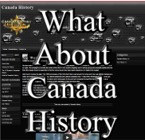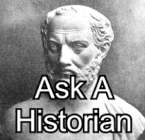|
|
|||||||||
Prehistory | 2 Worlds Meet | New France | England Arrives | Clash of Empires | Revolution | British America | Reform/Revolt | Responsible Government | Confederation | Nation Building | Laurier | The Great War | Roaring 20's | Great Depression | WWII | The Peace | Cold War | Trudeau | PC's in Power | Modern Canada
Family Compact | Lower Canada | Upper Canada | William Lyon Mackenzie | Louis Joseph Papineau | The Maritimes | Durham Report
William Lyon Mackenzie was a fiery and vocal critic of the Upper Canadian system in the 1820's and 30's. His temperament and conviction led him to the point where he not only advocated armed rebellion against the colonial government but led it.
He was born in Dundee Scotland on March 12, 1795 and immigrated to Canada in 1820 where he began writing for the Montreal Herald after a stint of manual labour building the Lachine Canal.
In May of 1824 he decide that he could run a newspaper and started the Colonial Advocate, in Queenston, which was a newspaper which served as an opposition position to the group known as the family compact who were firmly in power in Upper Canada. He mover to Toronto and continued his attacks on the lack of responsible government and the family compact's corrupt and self serving record.
He quickly became a folk hero among the common man in Upper Canada who generally felt that he was right about the family compact and that something should be done. Not satisfied with just writing about the government, he ran for office in 1828 and was elected to the House of assembly for York county.
1829 was a critical year in his political development when he visited the United States and while in Washington he visited and had a meeting with the U.S. President Andrew Jackson. He left this meeting feeling that his criticisms of the Upper Canadian political elite were justified and that a republican government was perhaps the only real answer to achieving political and social reform at home.
In 1832 he travelled to London to make a persona appeal to the British Government concerning the grievous state of affairs in Upper Canada and was received with courtesy and a genuine sympathy. His aggressive and direct attacks upon the Family Compact brought an immediate response with threats of legal action, libel suits and an attack upon his newspaper office where his printing presses were broken and thrown into Lake Ontario.
He was continually re-elected to the legislative assembly and in 1834 when Toronto elected it's first mayor, Mackenzie was their choice. The compact mounted a strong campaign against him in the 1836 legislative election and he was defeated. Mackenzie began to believe that power and money could not be defeated by the "fixed" electoral system in Upper Canada and regardless of who was elected to the legislature, they held no real power anyway.
By December of 1837 his high opinion of the American Republic was leading him to believe that the American Revolution might be the only practical example of how change might be effected in Upper Canada. On December 6, 1837 Mackenzie had gathered a group of reformers who were worked into a frenzy and decided to march on Toronto. They came streaming down Young Street looking to destroy compact property and business as an act of defiance and potentially trigger a large scale rebellion. When they came up against the local guards they first group of reforms fired their weapons and because they were in a position that did not allow movement to the sides, laid down so the rebels behind them could fire next. The men in the back thought that the men in the front were all being shot and killed and panicked and started to run. Within a few moments the panic had spread and the reforms fled back up Young Street to Montgomery's Tavern.
On December 7th the government forces had recovered and were organized enough to mount an expedition to the Tavern where they easily routed Mackenzie and his men. Mackenzie was forced to flee to the U.S. and tried to mount a comeback but was Canadian Militia thwarted these attempts.
Although he failed in his attempt to start a revolution in the colony, the results were to stun the British Government who were finally moved to action and is dispatched a representative to the Canada's to look into all of the issues.
Mackenzie spent 10 years in exile in the United States, one of which was in prison, and only returned to Canada in 1849 when he was granted a pardon. He quickly resumed his political career as MLA for Haldimand but by this time reform had been initiated and government had become responsible and much more representative. He finally retired in 1857 and resigned his seat in 1858 after seeing many of the goals he had worked for either achieved or within reach of being achieved.







